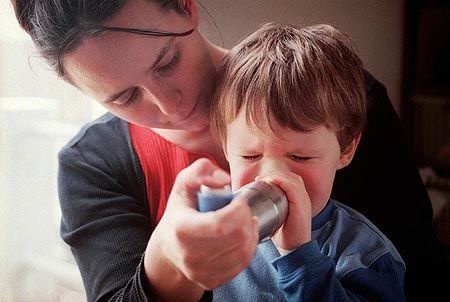
An asthma attack is caused by the swelling of the small lung passages (called bronchioles). During an attack, these tiny lung passages constrict and get blocked by phlegm. Hence, patients experience difficulty of breathing, coughing and wheezing. Wheezing is a high-pitched sound similar to a cat’s cry. The good news is that lifestyle changes can reduce your asthma attacks by 50%. Here is what you need to do:
1. Identify and avoid asthma triggers. Did you know that around 80% of people with asthma also have an allergy? Think about what you were doing before you had the attack. Did you smell some dusty or pungent material? Were you tired, angry or stressed? Was it hot? Note these down and avoid these situations in the future.
2. Are you allergic to food? Some asthmatics have a specific food allergy. Be careful with food preservatives, food coloring, junk food, wine, nuts, seafoods, egg and chicken. Find out if you’re allergic to these foods and avoid them. You can consult an allergologist-doctor.
3. Be careful with medicines. There are people who are allergic to drugs like aspirin, penicillin and pain relievers. Ask your doctor before taking an herbal supplement, too. Paracetamol for fever or pain is probably safest for you.
4. Avoid pollen. During the summer season, large quantities of pollen emanate from trees and grass. If it’s a hot and windy day, try to avoid going out of the house. Close your bedroom windows. There’s also more pollen before 10 AM.
5. You may open bathroom windows. Molds and fungi can trigger asthma, too. Molds like to grow in damp places like your bathroom. Hence, dry your bathroom after using.
6. Use a vacuum cleaner to suck out dust from your bed, sofa and floor. It’s a very effective way to reduce asthma attacks.
7. Simplify your homes. Don’t use carpets or rugs as these can accumulate lots of dust. Use washable curtains and blinds. There are likewise special dust-free pillow cases you can use.
8. Avoid pet dogs and cats. If you have pets at home, bathe them every week to reduce falling dander. However, it would be best if you didn’t have pets inside your house because their tiny hairs can penetrate and irritate your lung passages.
9. Reduce cooking smells by opening the kitchen window. Strong smells from frying onions and garlic can trigger an asthma attack. Open the windows or better yet, do your cooking outside the house.
10. Keep your house squeaky clean. Allergy and asthma are usually triggered by small insects called dust mites. These microscopic bugs live and eat dead skin cells which we shed off daily. To eliminate dust mites, wash your bed sheets, pillows and blankets every week. Place them under the sun to kill the mites.
11. Avoid smoke and cigarette smokers, too. Request your relatives and friends not to smoke in front of you. Limit going out on public transportation where bus fumes and dust abound. If you need to go out, a face mask may help.
12. Use an air-conditioner. Air conditioning is extremely helpful because it lowers humidity and filters dust and pollen, making breathing much easier. You can also try an air filter, and see if it helps.
13. Eat fruits and vegetables high in flavonoids such as oranges, pomelo, apples, grapes, and calamansi juice. These flavonoids strengthen our lungs, blood vessels and immune system.
14. Eat oily fish like sardines, salmon and tilapia. These fishes contain omega-3 fatty acids, which may be beneficial for asthma patients.
15. During an asthma attack, one home remedy is to drink a cup of black coffee. Studies show that caffeine acts similar to the anti-asthma drug theophylline and may open up the lung passages. However, if your symptoms are severe, it’s best to go to a hospital.
16. Avoid soft drinks and foods containing MSG. Especially for kids, MSG can trigger an asthma attack. Junk foods and some Chinese foods are high in MSG.
17. Avoid very cold or very hot weather. Extreme weather conditions can trigger an asthma attack.
18. Exercise regularly but don’t overdo it. You can go to a gym and try strengthening exercises for your arms, shoulders, chest and back muscles. These muscle groups are important for breathing. Swimming and singing are good exercises, too.
19. Try abdominal breathing. There are two ways to breathe: using your chest or using your abdomen. Abdominal breathing is more effective than chest breathing because it uses the more powerful abdominal muscle called the diaphragm. To illustrate, lie down on the floor and place your hands on your tummy. Then, as you inhale, your hands should elevate but your chest should hardly move. Abdominal breathing sucks in more air inside your lungs.
20. Wash your hands regularly to avoid viruses and bacteria. If you catch a cold, this can lead to an asthma attack.
Your lung specialist (also called pulmonologist) will know if you need maintenance medicines. If these drugs and inhalers are too expensive, you can try buying from a generic drugstore. Remember that asthma can be a serious and potentially deadly condition. Work hand in hand with your doctor to keep you asthma under control. Take care.



